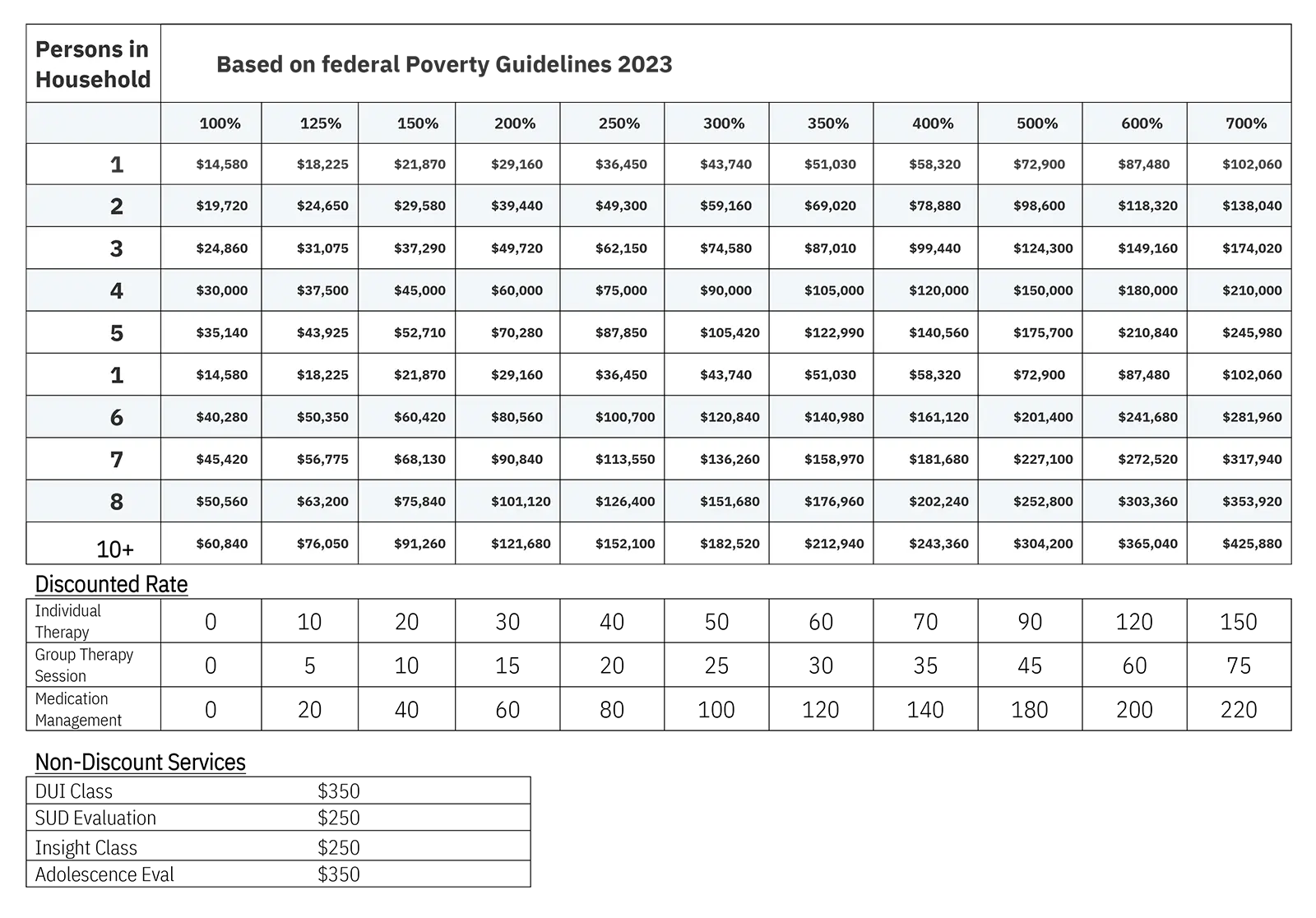Insurance: Your insurance policy may cover some mental health services. We bill insurance at our full rates. You may be required to pay an insurance deductible and/or co-payment, depending on your policy. If you are on a sliding scale fee, deductibles, co-payments, and services not covered by third-party payments will not exceed your sliding scale fee.
Change of insurance: It is your obligation to inform the receptionist if you have insurance that you wish to use for billing and when there are changes to your insurance status.
Medicaid or Medicare: If you are covered by Medicaid or Medicare, you will not be charged a copayment but may be charged on the sliding fee scale, for services not covered by those programs. The Children’s Healthcare Insurance Program (CHIP) under Medicaid requires a co-pay that you are responsible for.
Preauthorization: If your health insurance requires pre-authorization for services, it is your responsibility to coordinate this with your insurance company. If preauthorization is pending and you are on a sliding scale fee, we will charge you the full sliding scale fee until all preauthorization requirements are satisfied.
Third party contracts (DFS, DVR, EAP, etc.): Until verification is received, you will be responsible for the standard fee or your sliding scale fee.
Payment for minors: Parents are responsible for fees associated with treatment of their children. The parent or guardian signing the document will be considered the responsible party unless court documents are producted within 10 days of service indicating otherwise.
Group therapy is charged at half the individual therapy hourly rate.
Evaluation and court-ordered assessments are not subject to SSF rates and may cost more. Ask for more information about these rates.
Overdue accounts may be sent to a collection agency.
